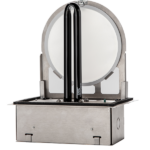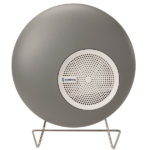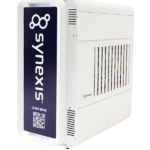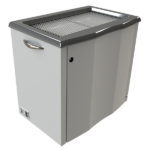As the summer sun climbs higher and higher in the sky every day, it brings warmth, long days, and lots of fun outside. However, it also brings challenges for indoor air quality (IAQ), which we know is vital for maintaining a healthy indoor environment. Understanding summer’s impact on indoor air quality and how technology like Synexis offers can mitigate them is essential to ensure well-being during the dog days.

Summer Brings Increased Pollutants to Impact Indoor Air Quality
Summer and spring preceding it often lead to an increase in airborne pollutants. We know about spring allergies, but higher temperatures can also exacerbate the release of volatile organic compounds (VOCs) from common household items like paints, cleaning supplies, and furnishings. Add in that air conditioning units can harbor mold and bacteria if they aren’t maintained properly and it’s easy to see how summer can contribute to decrease indoor air quality.
There is also pollen, smog, and sometimes even wildfire smoke that can find its way inside during the summer. This is because it’s a bit more prevalent, but also windows and doors are open more often, which give it a path inside.
Humidity and Mold Growth
One of the most significant factors affecting IAQ in summer is humidity. Warmer weather often brings higher humidity levels, which can be a breeding ground for mold and mildew, particularly in areas near water. These fungi release spores into the air that can trigger allergic reactions and respiratory issues. High humidity can also exacerbate dust mite populations, which further compromises IAQ.
Practical Tips to Improve Summer Indoor Air Quality
- Maintain HVAC Systems: Regular cleaning and servicing of air conditioning units to prevent mold and bacteria is crucial. Replace the filters as recommended to ensure efficient operation.
- Control Humidity: Using dehumidifiers in particularly humid areas can help quite a bit. Levels between 30 percent and 50 percent are ideal.
- Ventilation: Ensure you have proper ventilation in your home or your office to allow for the exchange of indoor and outdoor air. Exhaust fans in kitchens and bathrooms to remove excess moisture and pollutants help as well.
- Clean Regularly: Dust and vacuum often to reduce dust mites and other allergens. Pay special attention to those areas that are prone to moisture, like bathrooms and basements.
- Invest in Air Purification Technology: Synexis Systems work by converting humidity and oxygen in the air into patented Dry Hydrogen Peroxide (DHP®). That DHP can reach into corners of the room and help provide additional coverage needed to help clean the air and surfaces.
Summer’s impact on indoor air quality does present a unique set of challenges, but with the right approach and Synexis, these can be effectively managed. By understanding the dynamics of IAQ and implementing these strategies, you can help to improve your indoor space, regardless of the season.

To speak with an IAQ expert from Synexis, fill out this form and we’ll contact you as soon as possible.
And to learn more about Synexis, click here.


















